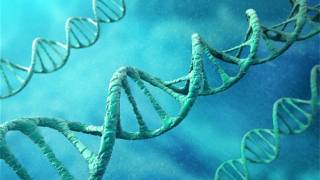Jeffrey Smith - The Health Dangers of Genetically Modified Food (Video)
Source: youtube.com
In consideration of the recent article: U.S. using food crisis to boost bio-engineered crops, take a look at this excellent lecture by Jeffrey Smith.Part 1
Part 2
Part 3
Part 4
Part 5
Part 6
Video from: http://www.youtube.com/watch?v=94d-KVorSHM
Genetically Modified Foods Unsafe? Evidence that Links GM Foods to Allergic Responses Mounts
By Jeffery Smith | globalresearch.ca
Genetically modified (GM) foods are inherently unsafe, and current safety assessments are not competent to protect us from or even identify most dangers. Overwhelming evidence to support this conclusion is now compiled in the book Genetic Roulette: The documented health risks of genetically engineered foods, which presents an abundance of adverse findings and theoretical risks associated with GM foods.1
The book documents lab animals with damage to virtually every system studied; thousands of sick, sterile, or dead livestock; and people around the world who have traced toxic or allergic reactions to eating GM products, breathing GM pollen, or touching GM crops at harvest. It also exposes many incorrect assumptions that were used to support GM approvals. This article, excerpted from my book, summarizes some of the findings related to allergic and immune responses.
GM Soy and Allergies
Soy allergies jumped 50% in the U.K. just after GM soy was introduced.2 If GM soy was the cause, it may be due to several things. The GM protein that makes Roundup Ready Soy resistant to the herbicide does not have a history of safe use in humans and may be an allergen. In fact, sections of its amino acid sequence are identical to known allergens.3
A portion of the transgene from ingested GM soybeans, along with the promoter that switches it on, transfers into human gut bacteria during ingestion.4 The fact that the transformed bacteria survives applications of Roundup’s active ingredient, glyphosate, suggests that the transgene continues to produce the Roundup Ready protein. If true, then long after people stop eating GM soy they may be constantly exposed to its potentially allergenic protein, which is being created within their gut. (This protein may be made more allergenic due to misfolding, attached molecular chains, or rearrangement of unstable transgenes, but there is insufficient data to support or rule out these possibilities.1)
Studies suggest that the GM transformation process may have increased natural allergens in soybeans. The level of one known allergen, trypsin inhibitor, was 27% higher in raw GM soy varieties. More worrisome, it was as much as sevenfold higher in cooked GM soy compared to cooked non-GM soy.5 Not only is this higher amount potentially harmful, the finding also suggests that the trypsin inhibitor in GM soy might be more heat stable and, therefore, even more allergenic than the natural variety.6
It is also possible that changes in GM soy DNA may produce new allergens. Although there has never been an exhaustive analysis of the proteins or natural products in GM soy, unpredicted changes in the DNA were discovered. A mutated section of soy DNA was found near the transgene, which may contribute to some unpredicted effects. Moreover, between this scrambled DNA and the transgene is an extra transgene fragment, not discovered until years after soy was on the market.7 The RNA produced is completely unexpected. It combines material from all three sections: the full-length transgene, the transgene fragment, and the mutated DNA sequence. This RNA is then further processed into four different variations,8 which might lead to the production of some unknown allergen.
Another study verified that GM soybeans contain an IgE-binding allergenic protein not found in nonGM soy controls, and that one of eight subjects who showed a skin-prick allergic reaction to GM soy had no reaction to nonGM soy.9 Although the sample size is small, the implication that certain people react only to GM soy is huge.
The increased residue of Roundup herbicide in GM soy might contribute to increased allergies.10 In fact, the symptoms identified in the U.K. soy allergy study are among those related to glyphosate exposure. The allergy study identified irritable bowel syndrome, digestion problems, chronic fatigue, headaches, lethargy, and skin complaints including acne and eczema.2
Symptoms of glyphosate exposure include nausea, headaches, lethargy, skin rashes, and burning or itchy skin.11 It is also possible that glyphosate’s breakdown product, AMPA, which accumulates in GM soybeans,12,13 might contribute to allergies.
Finally, mice fed GM soy had reduced levels of pancreatic enzymes.14,15 When protein-digesting enzymes are suppressed, proteins may last longer in the gut, allowing more time for an allergic reaction to take place. Any reduction in protein digestion could therefore promote allergic reactions to a wide range of proteins, not just to the GM soy.
Continue reading: Genetically Modified Foods Unsafe? Evidence that Links GM Foods to Allergic Responses Mounts






















